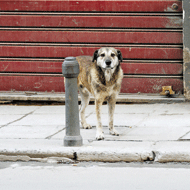Ketamine petition receives over 3,000 signatures

Ketamine is critical for control of zoonotic diseases like rabies.
A WSAVA petition calling for ketamine not to be placed under international control has received over 3,000 signatures.
In 2014, China proposed to reclassify the drug to Schedule 1 following widespread misconception that it is only a ‘recreational drug’.
Yet a review by the World Health Organisation (WHO) concluded that ketamine abuse does not pose a global public health threat, and that such control would limit access to those who most need it as a life-saving anaesthetic.
This week, delegates at the 29th UN Convention on Narcotic Drugs (CND) (14-22 March, Vienna) will meet to decide between the two opposite proposals.
In an open letter, the WSAVA urge the CND to follow the recommendations of the WHO. In it they write:
“The proposal for international control stems from the widespread misconception that it is only a 'recreational drug.' This is an inaccurate view and devalues the contribution that ketamine makes to to human and animal health. The WSAVA believes that it is an essential medicine.
“Ketamine is a remarkably safe anaesthetic which has been used worldwide for more than 50 years. It does not depress respiration or the circulation. It can be used without oxygen, ventilators and electricity supply and support systems required for other anaesthetics.
“These characteristics make it the only anaesthetic suitable for both medical and veterinary use in lower and middle income countries.”
As well as having particular value ‘in the field’ - for trauma, traffic and sporting injuries, ketamine is the most common and often only product for steralization initiatives. It also plays a huge role in feral cat/dog populations and is critical for control of zoonotic diseases like rabies.
The WSAVA conclude: “The WSAVA believes that medical and veterinary professionals should continue to have access to ketamine under the current scheduling controls and calls on concerned individuals to support our campaign to allow access to this essential medicine.”
To support the campaign and sign the petition visit: www.change.org.



 The latest
The latest